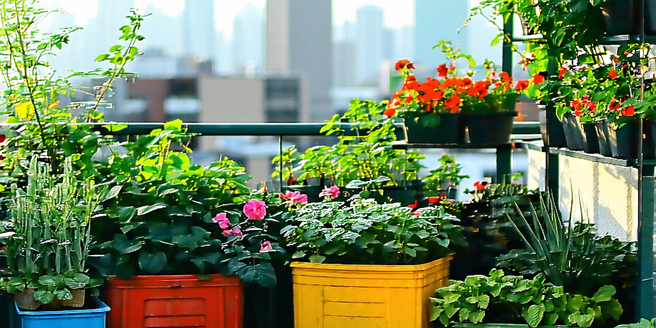Free Urban Gardening Advice

Choosing the Right Containers for Urban Spaces
When gardening in urban areas, selecting the right containers is crucial. Consider the space available and the type of plants you wish to grow. It’s also important to evaluate the amount of sunlight your outdoor space receives throughout the day. Lightweight containers made from plastic or fiberglass are ideal for apartments or rooftops because they are easy to move. Ensure your chosen containers have drainage holes to prevent waterlogging. Some containers come with reservoirs that help retain moisture, reducing the need for frequent watering. With limited growing space, vertical planters or wall-mounted containers can maximize your planting area. They allow you to have more plants without taking up additional ground space. Before purchasing, ensure that the containers match the aesthetic and functional requirements of your urban environment.
Essential Tools for the Urban Gardener
Urban gardening demands a select set of tools tailored to smaller spaces. A good hand trowel is indispensable for planting and transplanting. Opt for ergonomic designs to ease strain. Pruners are essential for trimming and maintaining plant health; invest in a quality pair that can handle a variety of plants. A watering can with a long spout helps water hard-to-reach areas, while a spray bottle is perfect for misting delicate seedlings. Additionally, using organic fertilizers can enhance the growth of your urban garden. For those with vertical gardens, a small ladder or step stool is useful. Consider acquiring a compact tool bag to keep everything organized and easily accessible in tight urban quarters.
Maximizing Limited Space with Vertical Gardening
Vertical gardening is a game-changer for urban gardeners with limited space. By utilizing walls, fences, or even specially designed structures, you can greatly increase your planting area. This approach not only conserves ground space but also adds an appealing aesthetic to urban environments. Moreover, vertical gardens can serve as insulation for buildings, helping to regulate interior temperatures. Additionally, vertical gardens can help improve air quality by filtering pollutants. Consider plants like herbs, succulents, and trailing vines, which thrive in vertical systems. Utilize pockets, shelves, or tiered plantings to create layers and depth. Materials such as wooden pallets or metal grids can serve as sturdy and effective supports. Remember, proper sunlight and water access are crucial, so position vertical gardens in spots with adequate exposure.
Top Urban Plants: What to Grow and Why
When choosing plants for urban gardening, consider both functionality and resilience. Herbs like basil, thyme, and mint are perfect for small space gardens due to their compact nature and culinary uses. Leafy greens such as spinach and lettuce grow well in containers and provide quick harvests. Be sure to assess the amount of sunlight available, as this will greatly influence plant selection. Vertical gardening techniques can also maximize the use of limited space. Opt for dwarf varieties of vegetables, including tomatoes and peppers, which are specifically bred for container growing. Succulents and cacti are ideal for those with less time for maintenance, as they require minimal watering and care. Finally, flowers like marigolds and pansies not only brighten spaces but are also excellent pest deterrents.
Sustainable Practices for the Urban Gardener
Embracing sustainability in urban gardening can transform your green space into an eco-friendly oasis. Start by recycling containers for plant pots, which reduces waste and saves money. Implementing a rainwater collection system can significantly cut down on water usage. By incorporating these practices, you contribute to a more sustainable city landscape. Practice composting kitchen scraps to create nutrient-rich soil, reducing the need for chemical fertilizers. Adding mulch to your garden beds can help retain moisture and further cut down on watering needs. Opt for organic seeds and plants, and consider companion planting to naturally deter pests. Consistently opting for native plants can support local wildlife and reduce the need for excessive watering. These practices not only benefit the environment but also improve the health of your urban garden.